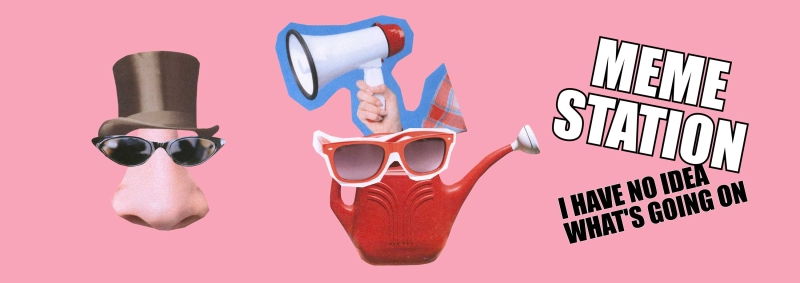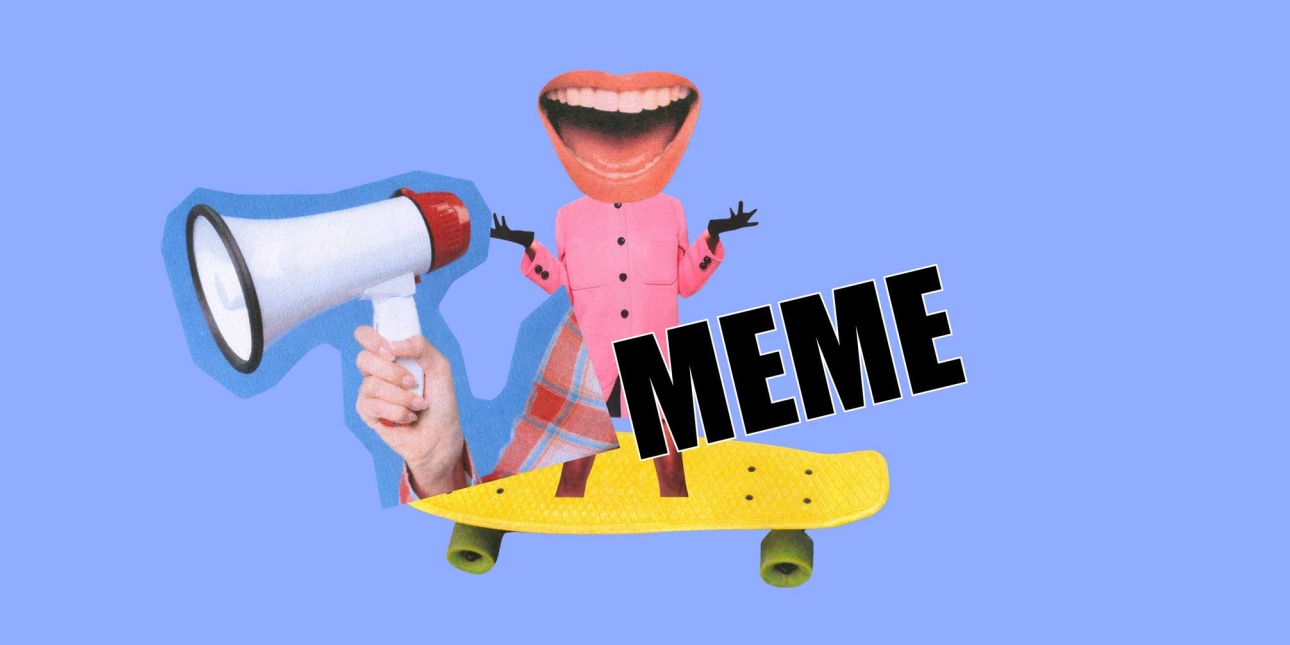In the market for memes
Funny little in-jokes – or the future of communications? We investigate memes.
Memes: they’re the visual lingua-franca of social media. You’ll know the really big ones by now: ‘Condescending Wonka’, featuring a smirking Gene Wilder; the ‘Aggrieved Girlfriend’ giving her boyfriend the stink-eye as he eyes up a passing stranger; or ‘Two Spider Mans’ - the one namechecked by Dominic Cummings last May when he told the select committee about Number 10’s hierarchy of dodged responsibility (“All the different Spider-Mans were pointing at each other saying, ‘You’re responsible’”).
While the word ‘meme’ itself is rooted in Greek antiquity – it means “that which is imitated” – it was also employed in 1976 by evolutionary biologist Richard Dawkins, to identify any shareable slice of culture that went viral. Which, you’ll agree, sounds much closer to its modern meaning. And they’ve become insanely popular in an era where the average human attention span has dropped from 12 to eight seconds. A 2019 survey from the US revealed that some 75% of 13- to 36-year-olds share memes on social media. Naturally, they've been especially popular during the pandemic: one study found that global online content consumption doubled in 2020.
So, it’s unsurprising, then, that marketers and brands want a piece of the pie. As Aidan Cole writes for Forbes, “Memes aren’t just for college kids or bored office workers. They can be an integral part of your marketing strategy.” Adds co-founder of Memes.com, Razvan Romanescu, “I have been telling people memes are the future of social marketing for years – I would always get pushback. Not any more. The times have changed and every brand is now adapting.”
Memes aren’t just for college kids or bored office workers. They can be an integral part of your marketing strategy.

Our audience is used to digesting [memes], it's the way we all speak to each other now... words aren't actually important anymore.
Dan Bacon is Creative Director at the UK’s 20ten Creative Agency (according to their website they “create, connect and bring game-changing perspectives to the table”), who use memes a lot. What Dan doesn’t know about memes, you could scribble on the back of a matchbox. Which he’d probably then turn into a meme. “Our audience is used to digesting [memes],” says Dan. “It's the way we all speak to each other now - words aren't actually important anymore.” When Disney+ approached 20ten a few years ago to create content to reach beyond Marvel fans, he continues, “one of the biggest drivers for the audience was that our content would be shareable. It enabled our audience to have creative and conversational content usage.
The other thing about memes, as Dan acknowledges, is that they’re “massively tribal”, as users vie to outdo one another with existing templates. Writes Emily Bootle in the New Statesman, “The beauty of memes is that they make us feel part of a club... Everyone wants to get the joke first – or perhaps a bit more than other people.”
Dan relates how entire teams were commandeered during the last US presidential election to create and monitor whole blizzards of memes. “It has gone from being this sort of slightly irreverent thing to a really powerful tool,” he says. “You can change opinion – but in a really kind of unintrusive way. If you put an ad campaign on Billboard, everyone knows what you're trying to say. If you put a meme on social media, and it gets picked up and everyone runs with it, you’re probably doing the same, if not more, in terms of changing minds, but the [audience] don't read it like that, because it reads it like a piece of their own conversation.”
As Dan says, “The general perception of a meme is this weird, humorous little thing.” But at base, “it's just a really simple message.” Albeit one with tremendous influence and reach.

Marketing Memes: Five Golden Rules
- Harness humour. It humanises the brand, and is the prime factor that makes content spreadable.
- Meme-jack away. Especially if your brand has a younger following, weave its name into a meme that’s just starting to go viral and get carried with the momentum.
- Know your audience. If your brand makes puppy treats, you can surmise which side of the dogs versus cats divide they occupy.
- Be topical. Gareth Southgate consoling Bukayo Saka is alreadfy old news and will make you look slow off the mark.
- Do it yourself. Learn to use free meme generators such as Imgur and Quickmeme, and get the job done quickly - for free.
.jpg&w=728&h=90&maxW=&maxH=&zc=1)

